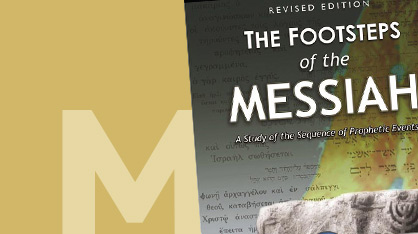Documents Policy
I. Purpose. This Document Retention and Destruction Policy provides for the systematic review, retention and destruction of documents received or created by Ariel Ministries in connection with carrying out its declared purpose. This Policy covers all records and documents, regardless of physical form (including electronic documents), contains guidelines for how long certain documents should be kept and how records should be destroyed. The Policy is designed to ensure compliance with federal and state laws and regulations, to eliminate accidental or innocent destruction of records and to facilitate Ariel Ministries’ operations by promoting efficiency and freeing up valuable storage space.
II. Document Retention Schedule. Ariel Ministries will follow the retention schedule below for all its Corporate records. Types of documents that are not listed, but are substantially similar to those in the schedule will be retained for the appropriate length of time.
| Incorporation and Governance documents | |
|---|---|
| Annual Reports to Secretary of State/Attorney General | Permanent |
| Articles of Incorporation | Permanent |
| Board Meeting and Board Committee Minutes | Permanent |
| Board Policies/Resolutions | Permanent |
| Bylaws | Permanent |
| Construction Documents | Permanent |
| Fixed Asset Records | Permanent |
| IRS Application for Tax-Exempt Status (Form 1023) | Permanent |
| IRS Determination Letter | Permanent |
| State Sales Tax Exemption Letter | Permanent |
| Contracts (after expiration) | 5 Years |
| Correspondence (general) | 3 Years |
| Accounting and Corporate Tax Records | |
|---|---|
| Annual Audits and Financial Statements | Permanent |
| Depreciation Schedules | 10 Years |
| General Ledgers | 10 Years |
| IRS 990 Tax Returns | Permanent |
| Business Expense Records | 6 Years |
| IRS 1099s | 6 Years |
| Journal Entries | 6 Years |
| Invoices | 6 Years |
| Sales Records (box office, concessions, gift shop) | 3 Years |
| Petty Cash Vouchers | 3 Years |
| Cash Receipts | 3 Years |
| Credit Card Receipts | 3 Years |
| Bank Records | |
|---|---|
| Cash Registers | 10 Years |
| Bank Deposit Slips | 7 Years |
| Bank Statement and Reconcoliation | 7 Years |
| Electronic Fund Transfer Documents | 7 Years |
| Payroll and Employment Tax Records | |
|---|---|
| Payroll Registers | Permanent |
| State Unemployment Tax Records | 10 Years |
| Earnings Records | 7 Years |
| Garnishment Records | 7 Years |
| Payroll Tax Returns | 7 Years |
| W-2 Statements | 7 Years |
| Employee Records | |
|---|---|
| Employment and Termination Agreements | 10 Years |
| Retirement and Pension Plan Documents | 10 Years |
| Performance Reviews and Records Relating to Promotions, Donations, or Discharge | 7 Years after termination |
| Accident Reports and Worker's Compensation Records | 5 Years |
| Salary Schedules | 5 Years |
| Employment Applications | 3 Years |
| I-9 Forms | 3 Years after termination |
| Time Cards/Sheets | 2 Years |
| Donor Records and Acknowledgement Letters | 7 Years |
| Grant Application and Contracts | 5 Years after completion |
| Legal, Insurance and Safety Records | |
|---|---|
| Appraisals | 10 Years |
| Copyright Registrations | Permanent |
| Environmental Studies | Permanent |
| Insurance Policies | 10 Years |
| Real Estate Documents | Permanent |
| Stock and Bond Records | 10 Years |
| Trademark Registrations | Permanent |
| Leases | 6 Years after termination |
| OSHA Documents | 5 Years |
| General Contracts | 3 Years after completion |
III. Electronic Documents and Records. Electronic documents will be retained as if they were paper documents. Therefore, any electronic files, including records of donations made online, that fall into one of the document types on the above schedule will be maintained for the appropriate amount of time. Emails pertaining to the types of scheduled documents above that contain substantial information NOT likely to be retained in any other form should be printed in hard copy and kept in the appropriate files or stored in an “archive” computer file folder. Electronic storage backup and recovery systems will be reviewed and tested on a regular basis.
IV. Emergency Planning. Ariel Ministries’ records will be stored in a safe, secure and accessible manner. Documents and financial files that are essential to operations during an emergency (e.g. extended power outages) will be duplicated or backed up at least every week and maintained off site.
V. Document Disposal. The Home Office Manager is responsible for managing the process of identifying and disposing of records that have reached the required retention period. Disposal of sensitive financial and personnel-related printed documents will be accomplished by shredding. Electronic documents will be disposed of by simple deletion.
All document disposal will be suspended immediately upon any indication of an official investigation or impending litigation. The disposal schedule will be reinstated only upon conclusion of such actions.
VI. Compliance. The Home Office Manager will periodically review these procedures with legal counsel or the organization’s certified public accountant to ensure that they are in compliance with new or revised regulations.







